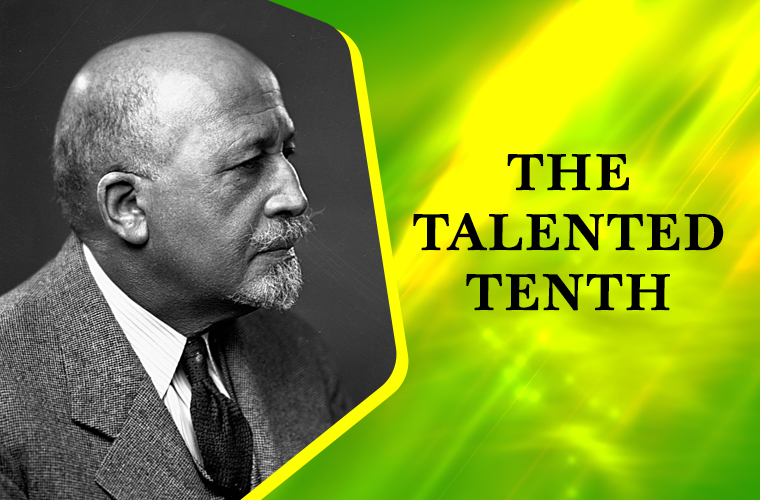The concept of the “talented tenth” has been a topic of discussion and debate within the African American community for over a century. Coined by W.E.B. Du Bois in 1903, the term refers to a leadership class of African Americans who, through their education and accomplishments, would help uplift the entire race.
Du Bois argued that the top ten percent of African Americans, the “talented tenth,” should be allowed to receive a higher education and assume leadership roles in society. He believed that by doing so, these individuals could serve as examples and advocates for the rest of the African American community, leading to overall progress and advancement. The idea of the “talented tenth” was met with both support and criticism. Some saw it as an elitist concept that ignored the struggles of the majority of African Americans, while others saw it as a pragmatic approach to addressing systemic inequality. Regardless of the differing opinions, the concept sparked important conversations about education, leadership, and social change within the African American community.
Over time, the concept of the “talented tenth” has evolved and been reinterpreted by various scholars and activists. While some have continued to advocate for a focus on developing a leadership class within the African American community, others have expanded the concept to include a broader range of individuals who possess talent and potential for contributing to societal progress. In contemporary discussions, the “talented tenth” concept remains relevant as a framework for considering how to best support and empower individuals within marginalized communities. It prompts important questions about access to education, representation in leadership positions, and the responsibilities of those who have achieved success to uplift others.
Critics of the concept argue that it can perpetuate elitism and neglect the needs of the larger community. They point out that focusing solely on a select group of individuals may not address the systemic barriers that prevent broader progress for all African Americans. Instead, they advocate for more inclusive and equitable approaches to addressing inequality. Proponents of the “talented tenth” concept emphasize the importance of recognizing and nurturing leadership potential within marginalized communities. They argue that investing in education and opportunities for those with talent and potential can have a ripple effect, benefiting the entire community. By providing support for individuals to excel, they believe that positive change can be catalyzed from within.
As discussions around the “talented tenth” continue, it is important to consider the complexities of addressing inequality and promoting advancement within marginalized communities. While the concept has sparked valuable dialogue and considerations, it is clear that any approach must be comprehensive and inclusive, taking into account the diverse needs and experiences within the African American community.
In conclusion, the concept of the “talented tenth” has been a thought-provoking and contentious topic within discussions of African American progress and leadership. Whether viewed as a pragmatic strategy or an elitist notion, it has prompted important conversations about education, representation, and societal change. As we continue to grapple with issues of inequality and empowerment, it is crucial to consider how best to support individuals within marginalized communities while also addressing systemic barriers to progress.

